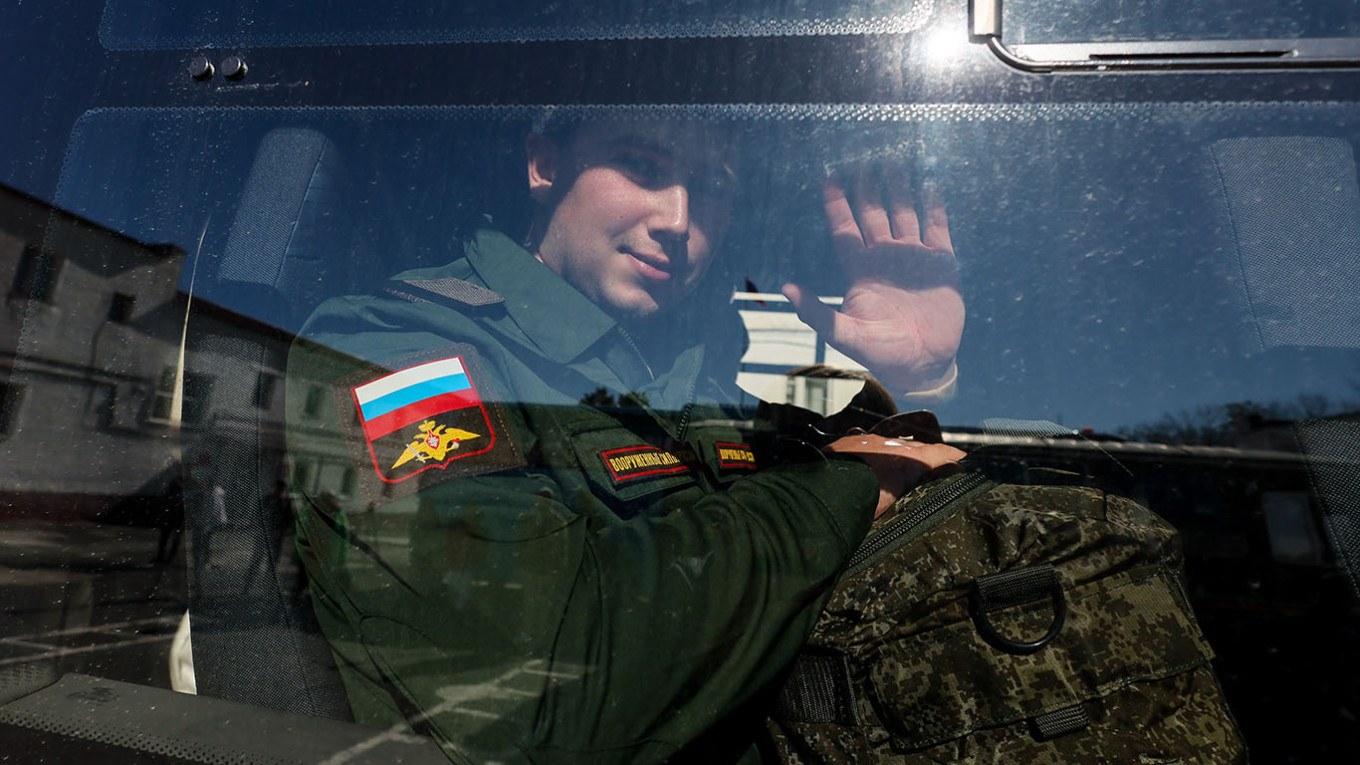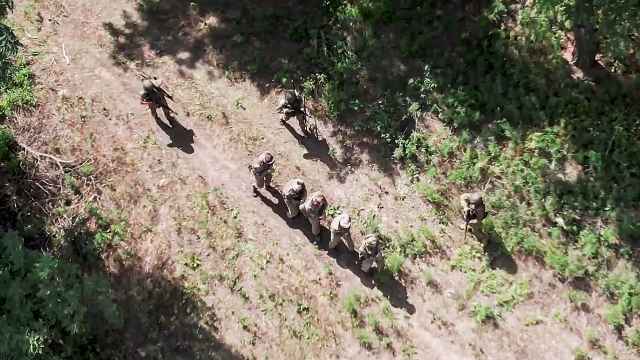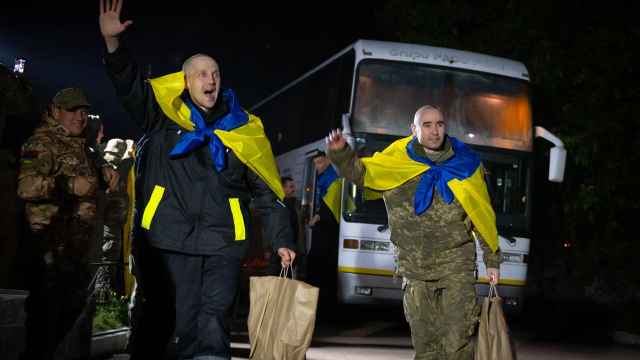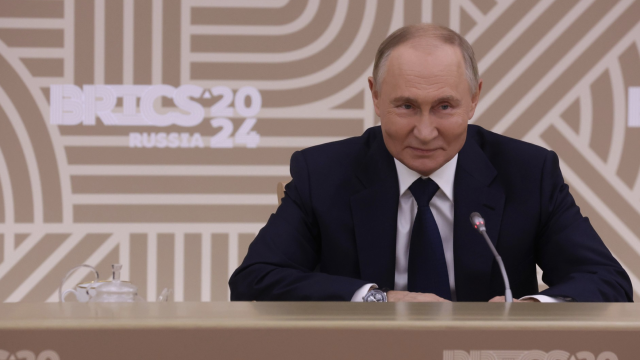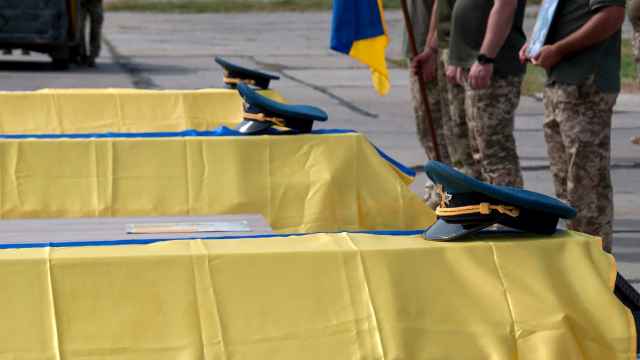When Vitaly Vasilyev, a 23-year-old from a rural village in the republic of Chuvashia, was drafted into the Russian army in 2021, he had no intention of becoming a contract soldier, much less going to war.
But like thousands of other Russian conscripts, he found himself on the front lines of Ukraine.
“I never signed a contract, despite the command encouraging us to do so from the very beginning,” Vasilyev told The Moscow Times in an interview from Yerevan, Armenia, where he now lives in hiding. “I cried. I wrote reports saying I didn’t want to serve. But it was all for nothing.”
At least 50,000 Russian soldiers have fled the military since the full-scale invasion of Ukraine in February 2022, according to leaked data published in May by the exiled outlet IStories.
Among them is a growing number of conscripts: young men, often poor and from remote regions, who say they were forced into contracts they never agreed to sign, and then sent to fight.
Despite denials by President Vladimir Putin and other top officials, conscripts have participated in combat from the earliest days of the invasion. At least 100 conscripts were killed, captured or went missing during Ukraine’s August 2024 Kursk region incursion.
The accounts of the conscripts interviewed for this story have been verified by InTransit and Idite Lesom, two organizations that help men flee the war.
In January 2022, Vasilyev was transferred to Unit 02511 in a village near St. Petersburg and his military ID was confiscated.
When it was returned to him after he was transported to the Kursk region, the ID had been altered to show he was now a contract soldier.
“An officer pulled me aside and said, ‘You didn’t hear this from me, but a war is about to start’,” Vasilyev recounted. “Back then, I didn’t believe it.”
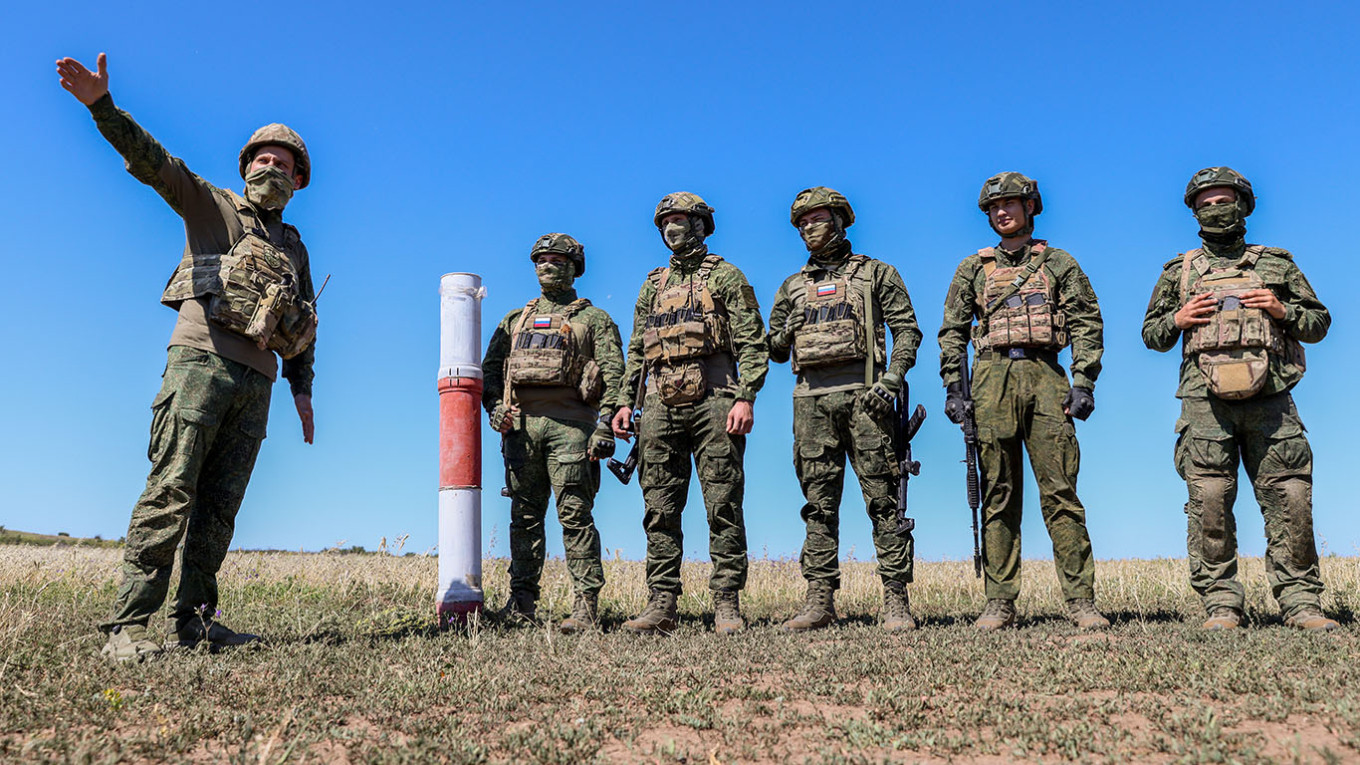
At 3:00 a.m. on Feb. 24, he and his fellow soldiers were assembled and told they were defending the motherland. Issued opiate painkillers, grenades, pistols and uniforms, they were packed into tanks and trucks and sent to war.
“Some smiled and laughed, as though they didn’t understand what was really happening,” he said. “I would later learn that one of the other conscripts shot himself in a trench days later. He just couldn’t take it anymore.”
Vasilyev initially refused to take part in the invasion, but was forcibly deployed to Kramatorsk in eastern Ukraine in March 2022.
“The HQ was in a school and we were stationed in a private house nearby,” he said. “The family who owned it fled in a hurry, leaving everything behind, even photos and documents. The atmosphere was horrifying. Our command would regularly return with an armored vehicle filled with alcohol and drink it all on the second floor while we stood guard.”
Russian troops would hunt down local men and lock them up in a basement under a grocery store for unclear purposes, Vasilyev said.
“Pillaging was rampant. One house had a sign that said, ‘A child lives here.’ Soldiers still broke in. They only stopped when they found the child and mother hiding in the basement,” he said.
After one week in Kramatorsk, Vasilyev shot himself in the foot with his own rifle.
“We were put on sentry duty. This is not my war, and I prayed I wouldn't have to kill anyone. I came up with a plan right there: I loaded 31 bullets in my rifle to make it look accidental,” he said. “It was my first time firing a weapon. I prayed I wouldn’t have to kill anyone. That shot saved me.”
Instead of being discharged, Vasilyev was interrogated by his commanders and accused of self-harm to avoid duty, a crime under Russian military law.
From a field hospital near Izium, Ukraine, he was transferred to a hospital in Moscow, where a sympathetic doctor helped him secure paperwork for a medical discharge.
“There were others like me. One guy shot his hand, also claiming it was an accident," he said.
While in Moscow, Vasilyev was also interrogated by the Federal Security Service (FSB).
"I made up a story: Someone accidentally shot me while jumping from an armored vehicle. The FSB agent didn’t care about the self-inflicted wound. He wanted to know who I saw, who I spoke to and if I killed anyone," he recalled.
Eventually, he was discharged and allowed to return to his home village.
"For two years I barely left the house,” he said. “I was scared of the police. Ordered food deliveries. It felt like another pandemic lockdown."
Then, in November 2024, the military police came calling after getting his contact details from his parents. He was ordered to report back to his unit the next day.
“I knew what to do. I’d been in touch with the Idite Lesom [‘Get Lost’] crisis group. That night I fled to Belarus, then flew to Yerevan,” he said.
At Minsk airport, a border guard questioned him about his military status and made a phone call. To Vasilyev’s surprise, he was allowed to board.
Now in the Armenian capital, he remains fearful of being forced back to Russia. His younger brother, drafted in 2024, is still at the front.
Vasilyev’s case underscores how Russia has systematized the use of conscripts in its war on Ukraine. Many are coerced into signing contracts or simply deployed without one. In April 2023, the State Duma passed legislation allowing conscripts to sign contracts from their first day of service.
For Nikita Zvezdov, a 19-year-old who was drafted in June 2024 after being expelled from technical college, the choice was similarly stark.
“The command was organizing conscripts into units. Every six months, trucks arrived to take them to the front. Some hoped they would be paid, but in the end they would receive 2,000 rubles [$24] a month,” he told The Moscow Times.
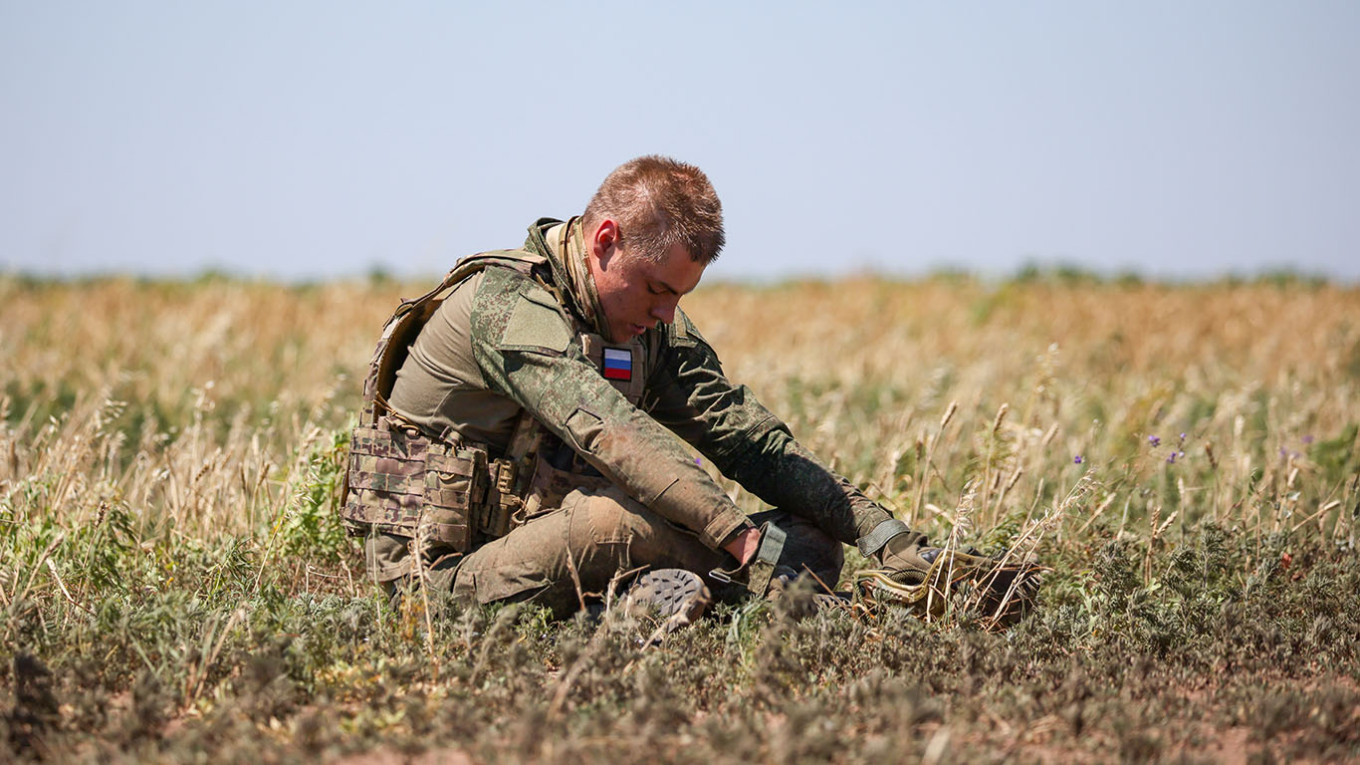
Those who resisted were tortured, Zvezdov said. He described soldiers being locked in boot dryers set at blistering temperatures and beaten until they relented.
“I was tortured later at the Sergeyevka training ground — forced to do 200 pushups and squats in a gas mask and hazmat suit. Run 50 laps in full gear, all while constantly being taunted. I thought I was going to die,” he said.
He recalled a commander who regularly shot conscripts with rubber bullets. Some soldiers suffered heart attacks or mental breakdowns. At least one died by suicide.
Eventually, under relentless pressure, Zvezdov signed a contract in September 2024. By October, he was at the Bikinsky training range, digging waste pits and burning trash under the scorching sun while awaiting orders for deployment to Mariupol or Melitopol.
“The commander changed our deployment plans daily: Mariupol, Melitopol; November, then December,” he said. “Finally, he said we had two weeks left. I thought about stepping on a landmine or injuring myself. I realized I’d never make it home alive.”
After convincing his officers to grant him short leave to “say farewells to relatives,” he decided to leave the country.
“At first I thought about hiding or even giving myself up and getting a jail sentence. But then I realized it’s better to have at least some kind of life abroad if my own country wasn’t willing to accept me alive,” he said.
Both Vasilyev and Zvezdov ended up in Armenia, one of the few countries that Russians can enter without an international passport. Yet even there, safety is tenuous.
Deserters describe constant fear of being abducted by Russian forces stationed in Gyumri. Surveillance of deserters is not unheard of, and at least two kidnappings have been reported.
Zvezdov recalled when he sold a laptop online and the buyers turned out to be Russian soldiers from the base in Gyumri.
“I was worried they were after me and tried not to show [my fear],” he said. “But they just bought the laptop and left.”
Given the Russian military presence in Armenia, many deserters say their only hope is to reach Europe and apply for asylum. In July, Armenian police prevented Russian military officials from seizing a Russian soldier who fled there.
Despite their uncertain future, Vasilyev and Zvezdov expressed relief at having survived.
“It's hard to feel good about my life turning out this way, my best years wasted. But I'm glad that I didn't end up on the front lines. I'm quite anxious already, and I have no idea how I would live with PTSD,” Zvezdov said.
A Message from The Moscow Times:
Dear readers,
We are facing unprecedented challenges. Russia's Prosecutor General's Office has designated The Moscow Times as an "undesirable" organization, criminalizing our work and putting our staff at risk of prosecution. This follows our earlier unjust labeling as a "foreign agent."
These actions are direct attempts to silence independent journalism in Russia. The authorities claim our work "discredits the decisions of the Russian leadership." We see things differently: we strive to provide accurate, unbiased reporting on Russia.
We, the journalists of The Moscow Times, refuse to be silenced. But to continue our work, we need your help.
Your support, no matter how small, makes a world of difference. If you can, please support us monthly starting from just $2. It's quick to set up, and every contribution makes a significant impact.
By supporting The Moscow Times, you're defending open, independent journalism in the face of repression. Thank you for standing with us.
Remind me later.


